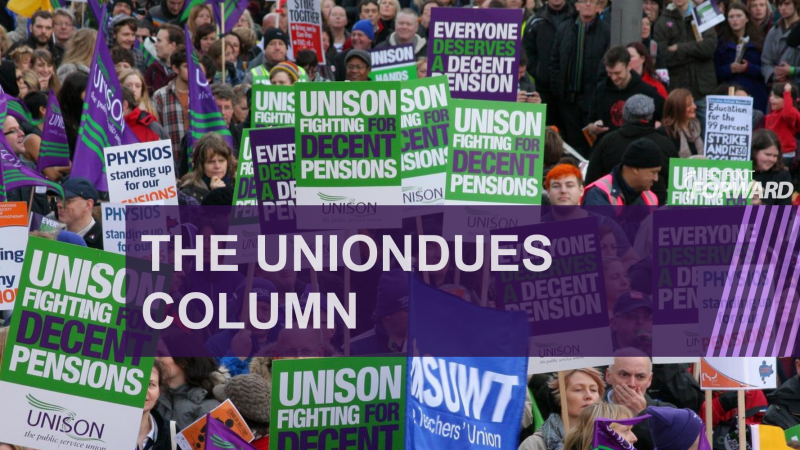Bosses know how to use data on their workers. How can unions get ahead of the game?

Simon Sapper is a trade unionist and host of the UnionDues podcast.
What we know, how we know it, and what we do with what we know – these are the key questions of the latest UnionDues podcast (available from 3pm today), as we dive into the world of data.
It might not be a sexy subject, but if you put good data in the capable hands of a union negotiator, you’ll soon see the powerful impact.
The link between data and union successes is not automatic, but the importance of understanding and efficient use of data cannot be underestimated.
Accurate membership records, for example, is hardly at the ‘rocket science’ end of the data spectrum (unless the members actually are rocket scientists, of course).
But knowing what members and potential members value most about the union offer, what informs their thinking, and what would encourage them to join or become active are crucial parts of the organising jigsaw.
Solid data analysis for the union movement has long had its champions – including Christina Colclough and her Why Not Lab. Organisationally, the physiotherapists union, CSP, has stolen a march on the rest of us by appointing a Head of Data. As far as we know, Jenny Andrew is the only union official with that title.
What is a Head of Data? Why have one? Jenny and the CSP union’s Director of Corporate Services and Infrastructure (CSI) Jon Mawby share their insights.
“Data is an asset but we’re not all using it in that way,” Jenny says. For those that do: “Data use isn’t the missing piece, but data management is.” She uses the analogy of a lightswitch versus dimmer switch to make the point about effective data management.
And as for her own position, Jenny says “if you had cash flow problems, you’d hire a financial adviser not a personal shopper.” Jenny’s role is digging deep into data and trends to boost the union’s influence and effectiveness.
But it’s also about respecting what data is necessary, and what isn’t. “If I’m organising in my workplace, I need a list of names but not home addresses or NI numbers. If we are doing data governance right, we will give people enough to do their jobs without causing ethical or regulatory concerns,” Jenny says.
Jon is clear that systematic use of data is a natural part of the CSP’s long tradition of evidence-based decision-making: “The art of what is possible with data can excite even people without technical expertise, but you need that expertise to avoid falling down rabbit holes.”
Also in the show, Glasgow University Professor of Work and Employment Melanie Simms takes timely look at Sustainable Development Goals in her #thought4theweek, and explores the links between the climate change agenda, and everyday working conditions. It’s not a spoiler to say the two are closer than you might think.
And we chat to Sam Johnson, chair of the charity campaigning for proper recognition for the ‘matchgirls’ who took strike action in 1888 – still a touchstone in the history of our labour movement.
This is a personal as well as political issue for Sam, as her great grandmother was Sarah Chapman – a leading figure in the dispute, whose burial site is now threatened by redevelopment.
The technical gremlins have tried – but failed – to derail Josiah Mortimer’s regular #RadicalRoundUp. All the union stories you might not find in the mainstream media but voiced just this week by actor David Kerr.
Listen to this and all episodes here.
Left Foot Forward doesn't have the backing of big business or billionaires. We rely on the kind and generous support of ordinary people like you.
You can support hard-hitting journalism that holds the right to account, provides a forum for debate among progressives, and covers the stories the rest of the media ignore. Donate today.



